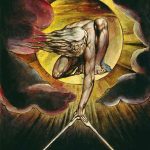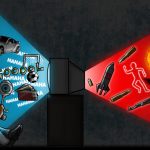
The Quiet Crisis: Why So Many Feel Lost—and How to Fight Back
May 7, 2025
Amusing Ourselves into Irrelevance: Reality TV, Anti-Intellectualism, and the Erosion of Thought
May 11, 2025Most people wrestle with the question of whether they even have a passion.
I’ve had two—raging, relentless, sacred passions.
One is the world of the arts: the theatre, the lens, the poem, the photograph, the haunted flicker of film and the sustained note that holds you like a breath.
The other is the world of machines: of combustion, control, speed, and grace at the edge of physics. Racing—not just as sport, but as transcendence.
I have spent my entire life trying to build a soul large enough to hold both.
And for the most part, the world around me—family included—has tried to shrink me in response.
The Pain of Multiplicity in a World of Boxes
Our culture loves its neat little labels:
The teacher.
The artist.
The car guy.
The professor.
It doesn’t know what to do with the man who teaches Shakespeare by day and photographs vintage Jaguars at dawn.
Who performs Macbeth onstage and spends his weekends chasing apexes through the desert.
Who plays Beethoven and listens for downshifts like symphonic punctuation.
So it pathologizes him.
Even those closest to me struggled to accept the split. My friends, over the years, politely endured it. But it was my mother who declared war on it.
She didn’t just doubt my passions. She condemned them.
“You can’t be an artist,” she told me flat out—as if it were a matter of genetics or divine ordination.
She blamed my love of racing on my father, though he was never a racer. He was a pilot—a man of sky and silence.
But when she saw that same need for motion and transcendence rising in me, it wasn’t nostalgia she expressed. It was contempt.
She called me the devil incarnate.
Because I wanted to create.
Because I wanted to move.
Because I refused to collapse myself into a version of the man she found tolerable.
The Soul’s Engine Cannot Be Split
Let me be clear: this isn’t about rebellion for rebellion’s sake.
It’s about surviving with integrity when the world tries to amputate parts of your soul.
When you have more than one daemon, the world often mistakes you for lost.
When your passions live in different languages—oil and ink, rubber and rhyme—the world tries to silence at least one of them. Often both.
But what I’ve learned—painfully, repeatedly, and still not perfectly—is this:
The pain isn’t from having two daemons.
The pain is from pretending I shouldn’t.
Refusing the Binary
I have been an educator for decades—often holding two full-time jobs just to feed both parts of myself.
There were years when I taught by day, directed plays by night, edited student essays, recorded scores, built festivals, revved engines—and still felt like I had to apologize for my “hobbies.”
But these are not hobbies. They are sacraments.
Art and motion are not opposing forces.
They are two expressions of the same daemon: the yearning for transcendence, for alignment, for meaning.
Art speaks the soul’s truths.
Speed reveals the soul’s limits.
Together, they make me whole.
To Those Who Carry More Than One Flame
If you, too, feel torn between paths—if you’ve been told you can’t, or shouldn’t, or must choose—know this:
You are not broken.
You are not selfish.
You are not chaotic.
You are complex in a world that fears complexity.
Do not amputate parts of your spirit for the comfort of others.
Do not let anyone tell you that your inner world is too much.
Let them say you are impossible.
Let them call you the devil.
You know better.
You are the artist of your own combustion.
The driver of your own symphony.
The playwright of your speed.
And you will not fit into their box, because you were born to build your own.
Live fully. Drive furiously. Create relentlessly. And never apologize for the fire